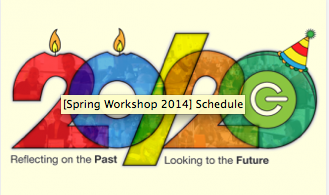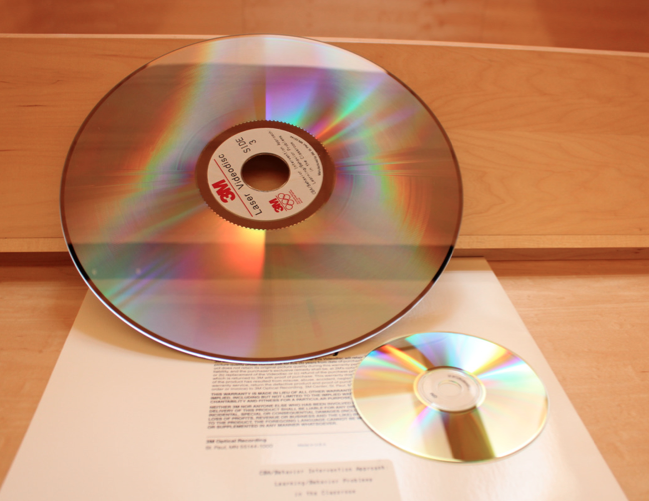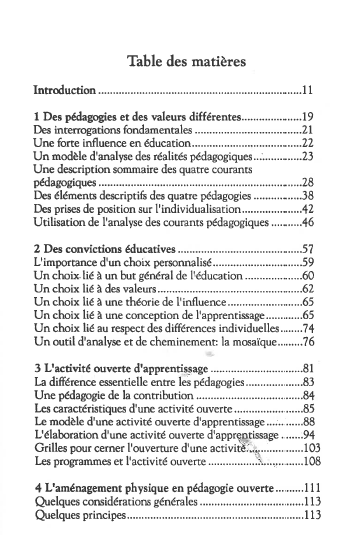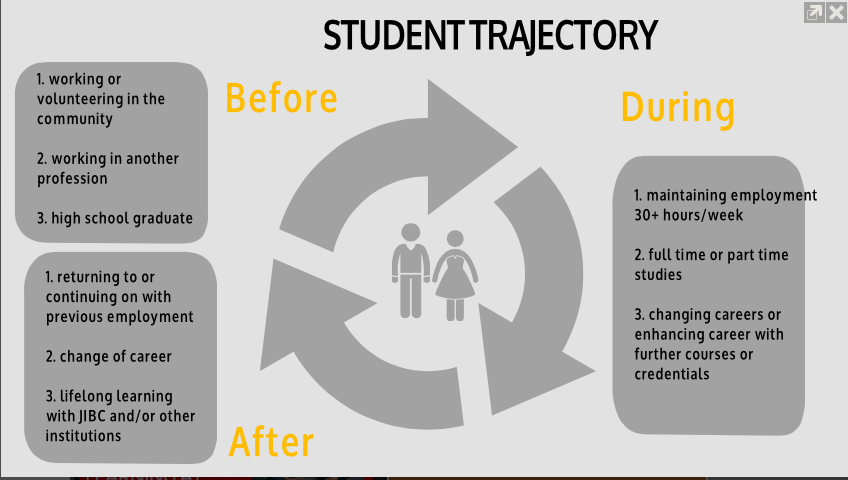#ETUG and the 1994 flashback
 I spent that last couple of days at the ETUG Spring workshop, which was a bit of a special one for the ETUG crowd given that it was the 20th anniversary edition. The Langara location was itself a bit of a flashback for me, given that my first real post secondary job was at Langara only 13 short years ago. For added fun, ETUG invited us to think about the state of educational technology 20 years ago in relation to our lives at that time.
I spent that last couple of days at the ETUG Spring workshop, which was a bit of a special one for the ETUG crowd given that it was the 20th anniversary edition. The Langara location was itself a bit of a flashback for me, given that my first real post secondary job was at Langara only 13 short years ago. For added fun, ETUG invited us to think about the state of educational technology 20 years ago in relation to our lives at that time.
The backstory
I found myself thinking about that a a fair bit during the 2 days, since there were so many subtle reminders of where we were and how we’ve evolved in higher education ed tech spaces. In 1994 I was a first year grad student at Université Laval in Québec City in the department of Didactique des langues secondes (Bilingual Education). My program, which had been mapped out by my thesis supervisor, was going to focus on self-directed language learning and ed tech. But I had zero interest in ed tech. I had selected my supervisor based on my interest in geo-political linguistics and language ecology and William F. Mackey was an international heavyweight in that area (eg. in 1994 he was publishing in an edited volume called La Ecología de las Sociedades Plurlingües/The Ecology of Multilingual Societies–good stuff, even today). But according to Mackey, there were no jobs in this area, and he was refusing to take on students in that topic, directing them instead to the fantastic future of educational technology and applied linguistics.
The problem was that in 1994 educational technology was largely inaccessible, expensive, dull, and visually unappealing. There was no internet at ULaval in 1994. Instead, we were treated to discs on slow computers that allowed students to practice vocabulary (affordance: Immediate feedback!!), or highlight text on the screen while reading (affordance: cognitive strategy!!). The limousine of educational technology came in the form of the video disc , and MIT’s À la Rencontre de Philippe , a branching interactive fiction released on video disc, was admittedly a shining star in the sea of dull.
My job was to create a computerized version of English Through Pictures, which I never did, because I got bored, started taking weaving and textile arts classes at the CÉGEP de Limoilou in their fantastic Métiers d’Art program , and eventually dropped out completely of my Masters. It took 5 years of doing other things and the appearance of the internet for me to pick it back up at UBC.
The ETUG connection
ETUG opened with a great keynote by @jenterysayers on maker culture, which had me reflecting on the tensions between maker and academic rigour, craft and art, applied education and “academic” education. But I also found it curious how so many ed tech/IT people are attracted to the idea of making or craft. In my case, craft has certainly been a necessary antidote to time spent in front of a screen.
There was also a strong thread of “open” at ETUG via numerous presentations, and this was also a good opportunity to reflect on both the 1994 state of journals, and ed tech software. I spent a lot of time in the library photocopying journal articles from the approximately three journals on ed tech and language learning that existed at the time (CALICO, System, CALL). If the open internet had been around in 1994, I likely would have been able to finish my masters project back then without a lot of cost or effort. Being an ed tech grad student in 1994 was pretty lonely, and I could have connected more widely with a great community of people like ETUG for support and advice, which highlighted for me how important that community has become.
On the flip side, I attended a great session by Esther Thiessen on the LMS, which really showed how little the LMS has changed in the past decade and a half and provoked us to think about why there are some things in ed tech that have not really changed at all. This is where I think there is room to do more making at our institutions–the LMS hasn’t changed because we don’t feel like we have the means or authority to change it, and it’s become a sort of ball and chain that we drag around. I hope that in 20 years we can look back on this problem and reflect on how far we’ve come thanks to openness and good community.



